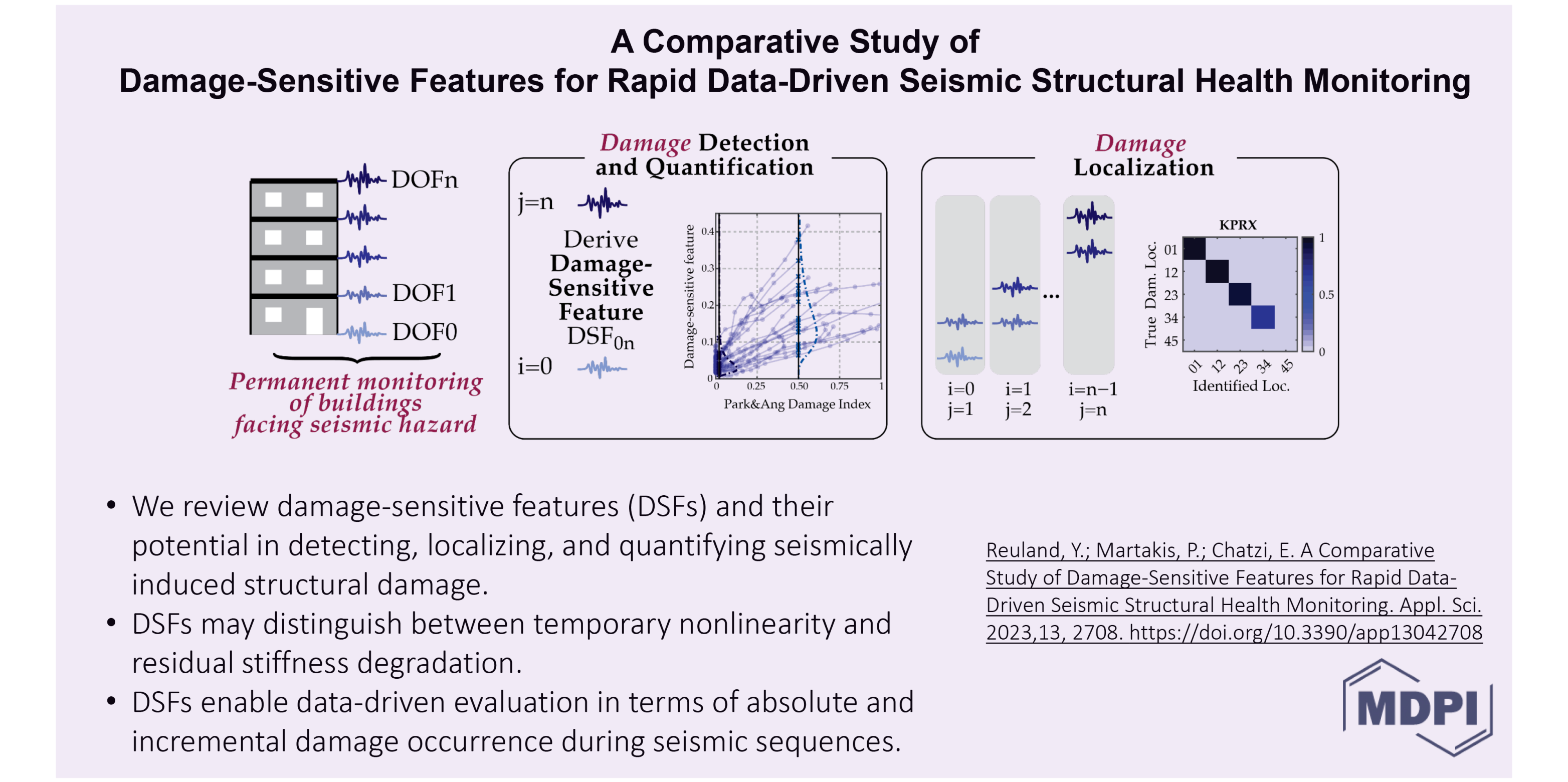Read our latest work on Seismic SHM
New paper out, led by Dr. Y. Reuland

In this work, led by Yves Reuland, with Panagiotis Martakis and Eleni Chatzi of the SMM group, we evaluate the potential of damage-sensitive features (DSFs) for offering insights into the experienced extent of nonlinearity and the occurrence of residual damage of building structures that are hit by an earthquake, as well as on accumulation of damage as a result of experienced seismic sequences. We offer a comprehensive review of damage-sensitive features in an effort to formally assess the capacity of such data-driven indicators to detect, localize and quantify the presence of nonlinearity in seismic-induced structural response.
Application to a simulated model and a large-scale shake-table experiment shows that DSFs calculated for short time windows are necessary to track nonlinearity over time, which enables differentiating between reversible and irreversible nonlinearities. We conclude with suggestion of an array of damage-sensitive features, which are found to be robust with respect to noise, to reliably detect and scale with nonlinearity, and to carry potential to localize the occurrence of nonlinear behavior in conventional structures undergoing earthquakes.
The research described in this paper was financially supported by the Real-time Earthquake Risk Reduction for a Resilient Europe ’RISE’ project, financed under the European Union’s Horizon 2020 research and innovation program.
Read more in external page Volume 13, Issue 4 of Applied Sciences